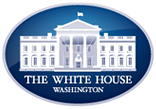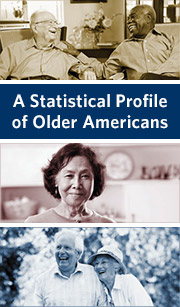About the Conference
The 2015 White House Conference on Aging was July 13, 2015. 2015 marked the 50th anniversary of Medicare, Medicaid, and the Older Americans Act, as well as the 80th anniversary of Social Security. The 2015 White House Conference on Aging provided an opportunity to recognize the importance of these key programs as well as to look ahead to the issues that will help shape the landscape for older Americans for the next decade.
In the past, Conference processes were determined by statute with the form and structure directed by Congress through legislation, the Older Americans Act. As of the White House Conference on Aging on July 13, Congress had not reauthorized the Older Americans Act. As a result, the 2015 conference followed a different format than previous conferences. While we sought broad public engagement, we did not establish a formal delegate process.
 The White House sought to include a diverse group of older Americans, caregivers, advocates, community leaders and experts from across the country in the Conference. We utilized technology to allow as many people as possible to participate. We provided many opportunities for everyone who wanted to participate in the event virtually. The entire event was webcast live, and a recording is available on our website. Individuals and organizations were encouraged to hold watch parties and participate via social media.
The White House sought to include a diverse group of older Americans, caregivers, advocates, community leaders and experts from across the country in the Conference. We utilized technology to allow as many people as possible to participate. We provided many opportunities for everyone who wanted to participate in the event virtually. The entire event was webcast live, and a recording is available on our website. Individuals and organizations were encouraged to hold watch parties and participate via social media.
Frequently Asked Questions
Q: What is a White House Conference on Aging?
A: The White House has held a Conference on Aging each decade since the 1960s to identify and advance actions to improve the quality of life of older Americans. The 2015 White House Conference on Aging is an opportunity to look ahead to the issues that will help shape the landscape for older Americans for the next decade. The 2015 White House Conference on Aging took place on July 13, 2015.
Q: When was the last White House Conference on Aging held and what was its purpose?
A:The 2015 White House Conference on Aging was held on July 13, 2015. In 2015, we marked the 50th anniversary of Medicare, Medicaid, and the Older Americans Act, as well as the 80th anniversary of Social Security. The 2015 White House Conference on Aging provided an opportunity to recognize the importance of these key programs as well as to look ahead to the next decade.
In the months leading up to the July event, the White House Conference on Aging collected input and feedback from Americans about how to shape the aging policy landscape through a number of venues, including our website, social media, listening sessions with stakeholders and by hosting regional forums across the country including in Tampa, Florida, Phoenix, Arizona, Seattle, Washington, Cleveland, Ohio, and Boston, Massachusetts.
Q: When is the next White House Conference on Aging?
A: Historically, the White House has held a Conference on Aging each decade since the 1960s. We expect the next Conference to convene in 2025.
Q: How was the 2015 White House Conference on Aging organized?
A: In previous years, conference processes were determined by statute with the form and structure directed by Congress through legislation, as part of the authorization of the Older Americans Act.
However, as of the 2015 Conference, Congress had not reauthorized the Older Americans Act, and the bill pending at the time of the Conference did not include a statutory requirement or framework for the Conference.
Nonetheless, the White House was committed to convening the 2015 conference and provided many opportunities for Americans to engage and offer input to the issues of most importance to older Americans and their families. We used web tools and social media to encourage as many older Americans as possible to participate. Additionally, we hosted five regional forums across the country. These forums brought together a community of older Americans, advocates, caregivers, experts, and local leaders who are committed to working to address the changing landscape of aging.
Throughout the year leading up to the Conference, the website (www.whcoagov) provided regular updates on Conference activities. The website also provided opportunities for older Americans and leaders in the field of aging to provide their input and personal stories.
Q: How were the themes selected for the 2015 White House Conference on Aging?
The 2015 White House Conference on Aging built on a year of activities that included five successful regional forums in Tampa, Phoenix, Seattle, Cleveland, and Boston; a series of webinars; and more than 100 high-level topical forums, listening sessions, meetings, speaking engagements and other events held across the country and in Washington, D.C. The following four themes emerged early on in the planning process and helped shape the conference agenda:
- Retirement security is a vitally important issue. Financial security in retirement provides essential peace of mind for older Americans, but requires attention during our working lives to ensure that we are well prepared for retirement.
- Healthy aging will be all the more important as baby boomers age. As medical advances progress, the opportunities for older Americans to maintain their health and vitality should progress as well and community supports, including housing, are important tools to promote this vitality.
- Long-term services and supports remain a priority. Older Americans overwhelmingly prefer to remain independent in the community as they age. They need supports to do so, including a caregiving network and well-supported workforce.
- Elder justice is important given that seniors, particularly the oldest older Americans, can be vulnerable to financial exploitation, abuse, and neglect. The Elder Justice Act was enacted as part of the Affordable Care Act, and we need to realize its vision of protecting seniors from scam artists and others seeking to take advantage of them.
Additionally, in Spring 2015, we issued policy briefs for each issue area. The briefs define and frame each issue area and reflect the most current evidence-based information on the issues. Each brief concluded with a series of discussion questions, and the public was encouraged to comment on our website or to e-mail comments to policy@whaging.gov. The WHCOA Final Report includes a summary of the public input.
Q: Who attended the 2015 White House Conference on Aging?
A: In the past, Conference processes were determined by statute with the form and structure directed by Congress through legislation, the Older Americans Act. As of the White House Conference on Aging on July 13, Congress had not reauthorized the Older Americans Act. As a result, the 2015 conference followed a different format than previous conferences. While we sought broad public engagement, we did not establish a formal delegate process.
The White House sought to include a diverse group of older Americans, caregivers, advocates, community leaders and experts from across the country in the Conference. We utilized technology to allow as many people as possible to participate. We provided many opportunities for everyone who wanted to participate in the event virtually. The entire event was webcast live, and a recording is available on our website. Individuals and organizations were encouraged to hold watch parties and participate via social media.
Q: Who should I contact if I have other questions or would like to provide input to the White House Conference on Aging?
A: For additional questions or to provide specific input, please feel free to contact:
White House Conference on Aging
330 C St. SW
Washington, DC 20201
(202) 619-3636
info@whaging.gov
www.whcoagov
History of the White House Conferences on Aging
The first White House Conference on Aging (WHCoA) was held in 1961, with subsequent conferences in 1971, 1981, 1995, 2005, and 2015. These conferences have been viewed as catalysts for development of aging policy over the past 50 years. The conferences generated ideas and momentum prompting the establishment of and/or key improvements in many of the programs that represent America’s commitment to older Americans including: Medicare, Medicaid, Social Security, and the Older Americans Act.

This website was last updated on February 3, 2016. It is no longer being maintained; however, it remains here as an archive for information on the 2015 White House Conference on Aging forums, blogs, press releases and activities over the period from October 2014–December 2015.
Some material on this website may be superseded, as it was created at a particular time. It may contain references to activities, policies and programs that have no current application. Content in the archive may link to web pages that have moved or no longer exist, or may refer to other documents that are no longer available.
For further information on the use of these archived documents please contact the Administration on Aging/Administration for Community Living at aclinfo@acl.hhs.gov. To stay up to date on issues important to older Americans, please visit Aging.gov or the Administration on Aging.



